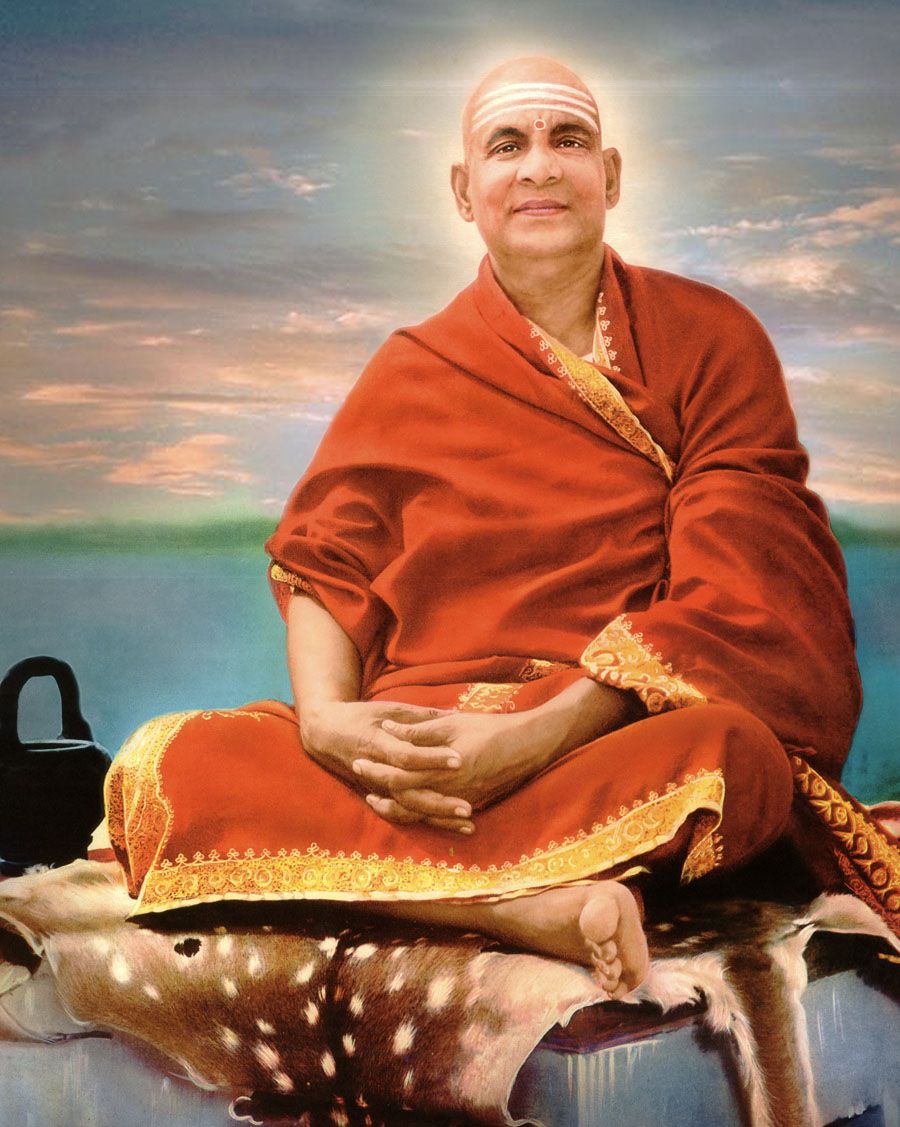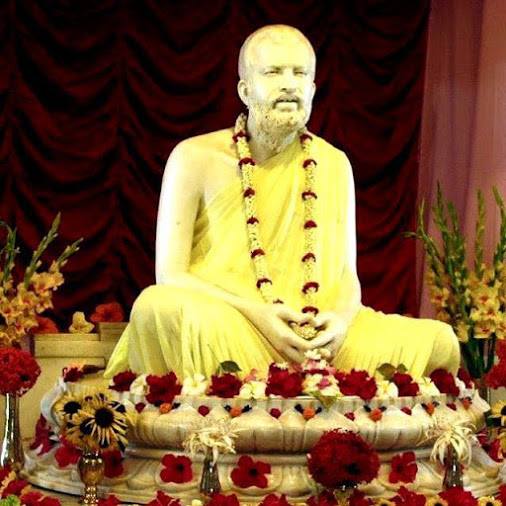How to find peace - 2 : Sri Swami Chidananda.
==============================================================
==============================================================
Sunday, January 30, 2022. 07:00.
2.Overcoming Restlessness :
This article is a chapter from the book : An Instrument of Thy Peace.
======================
In that state of calm, peacefulness is experienced without recourse to any doubtful alternatives. You don’t have to resort to marijuana or any type of “down pills” or “up pills”—no substances are necessary to make you calm. Peace becomes the state of your mind. One reason for a great deal of restlessness and weakness in these modern times is the individual’s attachment to outer experiences. There is an excessive craving for external stimulation—sight, sound, colour, activity and sense satisfaction. One goes to smoke a cigarette, flip through the pages of a magazine, or look at some programme on television. One has lost the ability to keep quiet without exercising the senses, and always the senses must be kept fed with some sort of excitement or satisfaction. This is a disease more typical of the modern person, and it is especially pronounced in big cities. Concrete walls rise up around the person from everywhere, canyons of buildings hem him in on all sides, and he is completely dwarfed by his urban environment.
The attachment to things and the desire for change, excitement and stimulation are an indication of restlessness. You experience an emptiness when you are just with yourself, and you want to fill it. It is a sort of subjective bankruptcy, because you seem to be insufficient unto yourself. This bias is not natural or based on reality. If man were only to know himself in depth, he would see that he is completely full and needs to have nothing added. But instead of being in this freed state, man feels a sense of loneliness, emptiness and isolation. He is afraid of this emptiness and wants to fill it up with sights, sensations and entertainment. But again, because this movement is essentially unnatural, it leads to restlessness.
The way to overcome this restlessness is to develop vairagya. As long as there is craving for some sort of sensation outside, you cannot overcome this lingering feeling of emptiness. Vairagya is a state of not craving anything, and it is developed through the awareness within that you do not need to be supported by anything—that you are sufficient unto yourself. The Self within is complete, and therefore you don’t need to be propped up as if you had no backbone. You create within yourself a state of dispassion towards objects, and you do not crave anything. In this way, the attachment to these outer props gets shaken free, and you become established in the state of detachment and dispassion. This is vairagya.
Raga is intense attachment for things or sensations, and the absence of raga is vairagya. A great yogi wrote one hundred verses on dispassion in which he said that everything is fraught with fear in this world, and only vairagya can bring liberation from this fear. If you can say, “I want nothing for myself,” then you have nothing to fear. With “I want nothing for myself,” you can say at the same time, “I do not fear.” If you are attached, you are always full of fear, but where there is dispassionate non-attachment, there is no fear. There is peace instead.
One of the avenues of draining away energy from your body and psyche is too much talking. It is a great waste of energy, and it can leave you feeling weak and exhausted if you don’t have a very strong constitution. Gurudev used to say that every day you should have a period of silence. Observe at least two hours of silence each day if you can—just be silent and do not talk. Talking leads to gossip, and gossip brings about distraction. Where there is distraction, there is restlessness. A great deal of restlessness is occasioned by the distraction created by too much talking, so all mystics and saints have advised a period of silence. The Sabbath is meant to be a day of silence, prayer and meditation; therefore, during that time you should not engage in any activity that draws you outside yourself.
Cultivating the habit of silence is a source of inner peace and strength. The distracted mind is weak, but through the practice of silence the mind gradually becomes concentrated and strong. Conservation of energy adds to your vital potential and strength. Persistent efforts to cultivate the practice of silence also bring about a heightened will-power. Man becomes gregarious from being in society, and there is always the temptation to talk. Silence has become difficult for him, and in order to maintain the flow of silence, you have to exercise will-power. By an effort of the will, you maintain your silence, and at the same time, maintaining silence becomes a good training for developing the power of the will.
******
Next -3. Goals, Principles and a Background of Thought :
To be continued ...
==============================================================







Comments
Post a Comment